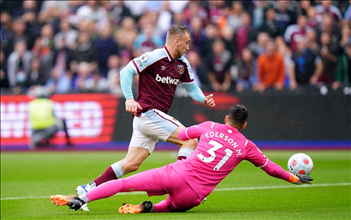英超什么时候成为第一联赛(英超的历史,什么时候成为世界第一联赛?)
- 发布时间:2023-08-22
- 70 阅读
When did the Premier League become the number one league? (The history of the Premier League, when d
When did the Premier League become the number one league? (The history of the Premier League, when did it become the world's top league?)
Football, also known as soccer, is undoubtedly the most popular sport in the world. With its rich history and passionate fan base, football has given birth to numerous leagues across the globe. Among these leagues, the English Premier League, commonly referred to as the Premier League, stands out as one of the most prestigious and competitive.
The Premier League was officially formed on February 20, 1992, as a result of the rebranding of the old First Division. The rebranding was driven by a desire to modernize English football and increase its commercial appeal. Little did anyone know at the time that this league would go on to become the pinnacle of football excellence.
Initially, the Premier League faced skepticism and criticism from traditionalists who believed that the changes would dilute the essence of English football. However, it didn't take long for the league to prove its worth and silence the doubters.
With the injection of substantial financial resources from broadcasting rights deals and sponsorship agreements, the Premier League attracted some of the world's best players. This influx of talent, combined with the league's competitive nature and high-quality football, started to capture the attention of football fans worldwide.
It was during the late 1990s and early 2000s that the Premier League truly began to assert its dominance on the global stage. The league witnessed the rise of iconic teams like Manchester United, Arsenal, and Chelsea, who consistently performed well in both domestic and European competitions.
 英超什么时候成为第一联赛(英超的历史,什么时候成为世界第一联赛?)" />
英超什么时候成为第一联赛(英超的历史,什么时候成为世界第一联赛?)" />
Manchester United, under the guidance of legendary manager Sir Alex Ferguson, became the flagbearer of English football success. Their dominance in the Premier League and their memorable Champions League triumphs elevated the league's reputation to new heights.
Furthermore, the Premier League's global appeal was fueled by the emergence of charismatic and talented players. Icons like David Beckham, Thierry Henry, and Cristiano Ronaldo graced the league with their skills, captivating audiences worldwide.
As the Premier League continued to evolve and improve, its popularity soared. The league's matches became must-watch events, attracting millions of viewers from all corners of the globe. The combination of intense competition, skillful players, and passionate supporters created an electric atmosphere that made the Premier League the envy of other football leagues.
By the mid-2000s, the Premier League had firmly established itself as the world's top league. Its financial power, global reach, and ability to attract the best talent made it the ultimate destination for footballers aspiring to test themselves against the best.
Today, the Premier League remains at the forefront of football excellence. Its competitive nature, thrilling matches, and iconic stadiums continue to captivate fans worldwide. The league's influence extends far beyond the football pitch, shaping popular culture and generating billions of dollars in revenue.

In conclusion, the Premier League became the number one league in the world through a combination of financial investment, high-quality football, and global appeal. From its humble beginnings in 1992, the league has grown into a powerhouse that sets the standard for football excellence. The Premier League's journey to the top serves as a testament to the passion and dedication of football fans and the enduring appeal of the beautiful game.
 上一篇
2023年08月22日 16:56
上一篇
2023年08月22日 16:56
 2023年08月22日 16:08
2023年08月22日 16:08







